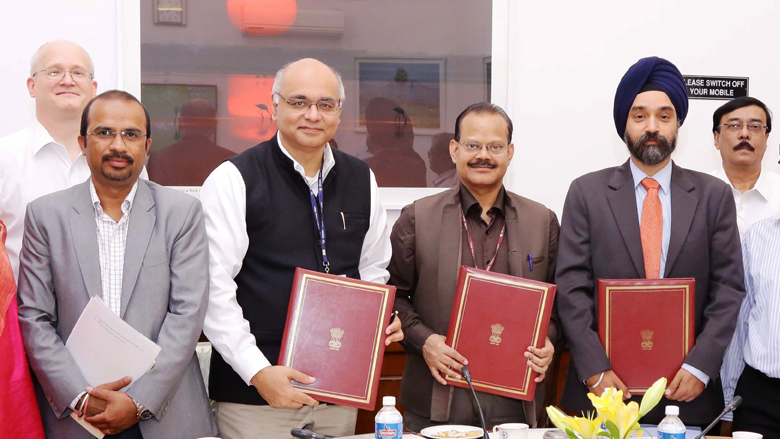NEW DELHI, February 23, 2017 – The Government of India, the Government of Jharkhand and the World Bank today signed a US$ 63 million credit agreement for the Tejaswini: Socioeconomic Empowerment of Adolescent Girls & Young Women Project in Jharkhand, which will support adolescent girls and young women, ages 14-24, to complete their secondary level education and acquire relevant skills for the job market.
This is the first World Bank project in India that is solely focused on the social, educational and economic empowerment of adolescent girls and young women in the state of Jharkhand.
The agreement for the project was signed by Raj Kumar, Joint Secretary, Department of Economic Affairs, Ministry of Finance, on behalf of the Government of India; Mukhmeet Singh Bhatia, Principal Secretary, Department of Women and Child Development and Social Security, on behalf of the Government of Jharkhand; and Junaid Ahmad, Country Director, World Bank India, on behalf of the World Bank.
"This is the first World Bank Project focusing solely on the adolescent girls,” said Raj Kumar, Joint Secretary, Department of Economic Affairs, Ministry of Finance. “It is also heartening that such a pioneering project will be implemented in Jharkhand. The Central Government would continue to encourage more Bank assisted projects in Jharkhand and other low income States."
The project, which will support market-driven skills training and secondary education as well as broader socio-economic empowerment for adolescent girls and young women in 17 select districts of Jharkhand[1], is expected to benefit about 680,000 adolescent girls and young women. In the 17 project districts, there are about 2.1 million adolescent girls and young women in the 14-24 age group, of which 13 percent belong to Scheduled Castes and 25 percent to Scheduled Tribes.
“Adolescent girls and young women in Jharkhand face multiple constraints to education, training, and employment. As a result, more than half of young women (ages 15-24) in the state are neither engaged in education, nor employment or training. Empowering these young women through life skills education, skills training and helping them complete their secondary education will improve the economic and social opportunities available to them, and enable Jharkhand to benefit from the demographic dividend,” said Junaid Ahmad, World Bank Country Director in India.

